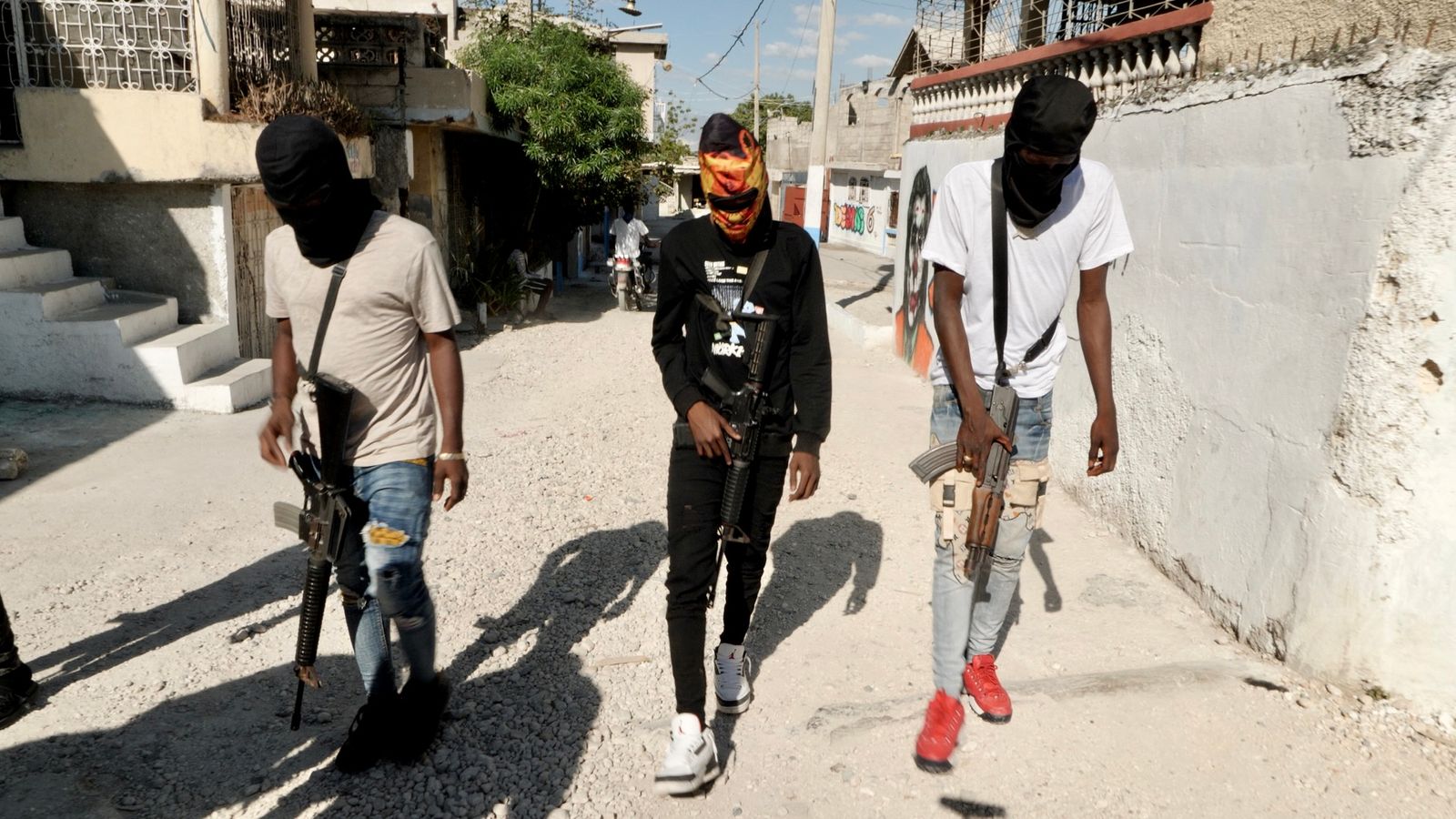Climate change reporting isn’t normally like this.
When you write about rising sea levels and intensifying cyclones, you don’t expect to end up in a brothel, talking about human trafficking.
You don’t think you’d hear a story about a graveyard for sex workers getting washed away.
Or end up visiting a place with so little hope.
But after six weeks of working on Bangladesh’s climate emergency, this is where our reporting has led us: to Banishanta, a shoreline brothel, on the southwest coast.
Here, women are called “girls” and houses are places of work, not rest.
And it’s where we meet Pervin.
She’s diminutive, her face wrapped in a light pink scarf, but as she leads us along the shoreline to her hut, she calls out to various neighbours in a surprisingly loud, bassy voice that there are foreigners here who want to speak.
She laughs at their shouted replies, audible from the interior of the tightly-packed shacks.
We sit on a small wooden bench, next to the water’s edge, and there Pervin tells us about where she came from, and how her family home and farm were destroyed by a combination of rising sea levels, river erosion and cyclones.
She was 15 and says the family needed money.
Then, one day, a woman came to them and said, if Pervin went with her, she would get her a job in a garment factory.
The story seemed plausible and the family readily agreed.
But instead of finding Pervin factory work, the woman brought her to Banishanta brothel and sold her.
“I was young, I didn’t know what to do,” she says, “so I just stayed here”.
“She abandoned me and I stayed.”
Banishanta is one of Bangladesh’s oldest brothels, drawing customers from the nearby Mongla port.
Even though sex work is legal, sex workers – and any children – are hugely stigmatised in mainstream culture.
Although Pervin was the victim, she says she felt she could not tell her family what happened.
To this day, her mother thinks she is married and working in a factory.
“I tell her I live with my in-laws,” she says, pinching the bridge of her nose as if admitting this to us is giving her a headache, “I don’t tell her about this. She doesn’t know.”
There are around 100 women working in Banishanta brothel.
Many have been trafficked and some, like Pervin, have been exploited because the impact of climate change on their lives and livelihoods have left them vulnerable.
They are sold into a precarious, dangerous life that few will ever escape.
There are women here in their seventies, no longer working, but with nowhere else to go.
Oddly, the wide-range of ages, from the very young to the old, does create a sense of community.
There are children running around, in and out of the shacks, playing, laughing and getting in the way of their mothers who, during the day, are cooking food and washing clothes.
We see one group of women playing a board game.
Another fishes for shrimp at the water’s edge.
But even this tiny shred of stability is being eroded.
The strip of land that Banishanta is built on is disappearing.
Rising sea levels and regular flooding are chipping away at the brothel’s banks.
At some points, at high tide, the land is under 10 metres wide.
The women tells us their homes frequently flood, even from a small storm.
They are forced to spend the money they earn on repairs and many have fallen into debt trying to keep their homes – without which they can’t work, of course – upright.
We go and meet the brothel’s chief madam, Razia Begum, who tells us they are stuck.
The sex workers can’t rebuild their homes any further inland, because that would mean they would cross the boundary into the nearby village, where they are not welcome.
“This land is disappearing and that’s a risk to us and our children,” she says, “but we earn better money here because of the port and passing boats.”
“If we move, we lose clients and what then?” she asks.
It’s an impossible question, because if there is any way out of this place, money is it.
Rina was sold into sex work when she was 10.
She now has an eight-month-old baby son, called Chandon.
When we first meet he’s full of smiles and drool but as we talk it starts to rain and the cool breeze seems to make him sleepy.
Rina carries him into her shack, popping him on her black satin bed-spread with a little blanket over him, whilst we speak.
She tells me she hopes one day they can leave here but knows it will take an enormous effort and money.
She also know there is little dignity for those that stay.
“When girls die here, they only get covered with earth,” she says, “we don’t get a religious burial”.
“There was a graveyard here but even that got washed away.”
She shrugs, “you just have to hope and work hard”.





